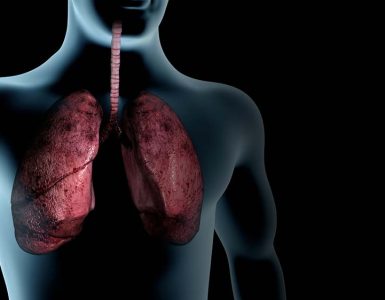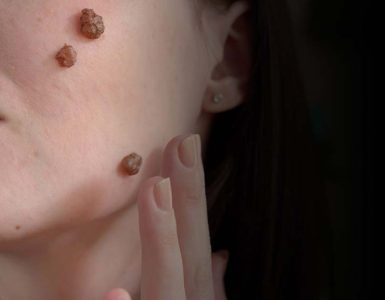Acquired Immune Deficiency Syndrome (AIDS) is a destructive disease that is considered as a death alarm. It is caused due to Human Immunodeficiency Virus (HIV) which is known to target specific types of T cells that are also known as CD4+ cells1. It is reported thatbacterial opportunistic infections can cause predominant morbidity and mortality amongst HIV seropositive patients, by reducing the CD4+ count below a critical level2.
Due to unnecessary or unsuitable usage of antibiotics, antibiotic resistance in microbes towards these synthetic antibiotics is being amplified. Therefore, natural products have been focused by scientists. Lemon oil is potential agent in this regard which is extracted from “Citrus limonum”and possess several bioactive components including citric acid, Ascorbic acid, minerals, flavonoids and essential oils3. Lemon oil also contains potent antioxidants which can lessen inflammation, protect against bacteria and fungi, enhance energy levels plus ease digestion4.
In addition, black seed “Nigella sativa” oil is also a useful commodity that has been utilized widely in folk medicine for therapeutic purposes5. Its ripe fruit consists of several dark black small seeds. In vivo and in vitro investigations show numerous pharmacological actions for N. sativa6.
However, up till now, the antibacterial effectiveness of lemon and black seed oil against opportunistic bacterial pathogens is not known. Therefore, scientists investigated the potency of black seed and lemon oil against bacteria isolated from HIV seropositive samples of patients and their antibiotics sensitivity profile in Nigeria7.

For this purpose, research team examined twelve blood and urine samples following their CD4+ count determination. The bacteria isolates were then identified by means of standard microbiological techniques and Kirby-Bauer’s disc diffusion method was used to study the antibiotics profile7.
In this experiment, Out of the seven isolated bacterial species, B. cereus and P. aeruginosa was found to have the maximum prevalence in the blood and urine samples, respectively. Commercial antibiotics including Pefloxacin as well as Ciprofloxacin exhibited a broad spectrum of activity against all the test isolates. Moreover, scientists observed that both Lemon and Black seed oils are effective at 10% concentration against all the tested isolates and compared favorably with the commercial antibiotics. However, black seed oil was noticed to own superior antibacterial activity against the isolates than lemon oil.
Conclusively, essential oils can be used as potential candidates against opportunistic bacterial pathogens associated with immunocompromised conditions like HIV.
Key words: human immunodeficiency virus, AIDS, antibiotic resistance, lemon oil, antioxidants, black seed, pharmacological actions
References:
- Pam, S., S.O. Shittu, A.T. Olayinka, S.E. Adaji and J. Ejembi, 2015. Pattern of microbial isolates and microbial sensitivity among HIV positive pregnant women with asymptomatic bacteriuria in Zaria, Nigeria. Int. J. Med. Biomed. Res., 4: 55-62.
- Kemajou, T.S., A.O. Ajugwo, C.E. Oshoma and O.I. Enabulele, 2016. Antibiotic resistance of bacterial isolates from HIV positive patients with Urinary Tract Infection (UTI) in Portharcourt, Nigeria. J. AIDS Clin. Res., Vol. 7.
- Di Vaio, C., G. Graziani, A. Gaspari, G. Scaglione, S. Nocerino and A. Ritieni, 2010. Essential oils content and antioxidant properties of peel ethanol extract in 18 lemon cultivars. Sci. Hortic., 126: 50-55.
- Hsouna, A.B., Trigui, R.B. Mansour, R.M. Jarraya, M. Damak and S. Jaoua, 2011. Chemical composition, cytotoxicity effect and antimicrobial activity of Ceratonia siliqua essential oil with preservative effects against Listeria inoculated in minced beef meat. Int. J. Food Microbiol., 148: 66-72.
- Develi, S., B. Evran, E. Betul-Kalaz, N. Kocak-Toker and G.O. Erata, 2014. Protective effect of Nigella sativa oil against binge ethanol-induced oxidative stress and liver injury in rats. Chin. J. Nat. Med., 12: 495-499.
- Beheshti, F., M. Hosseini, F. Vafaee, M.N. Shafei and M. Soukhtanloo, 2015. Feeding of Nigella sativa during neonatal and juvenile growth improves learning and memory of rats. J. Tradit. Complement. Med., 6: 146-152.
- Babayemi O. Oladejo, Joseph O. Obameso and Ibikunle I. Anibijuwon, 2018. Evaluation of Lemon and Black Seed Oils on Bacteria Isolated from HIV Positive Patients. Asian J. Biol. Sci., 11: 108-113.
















Add comment